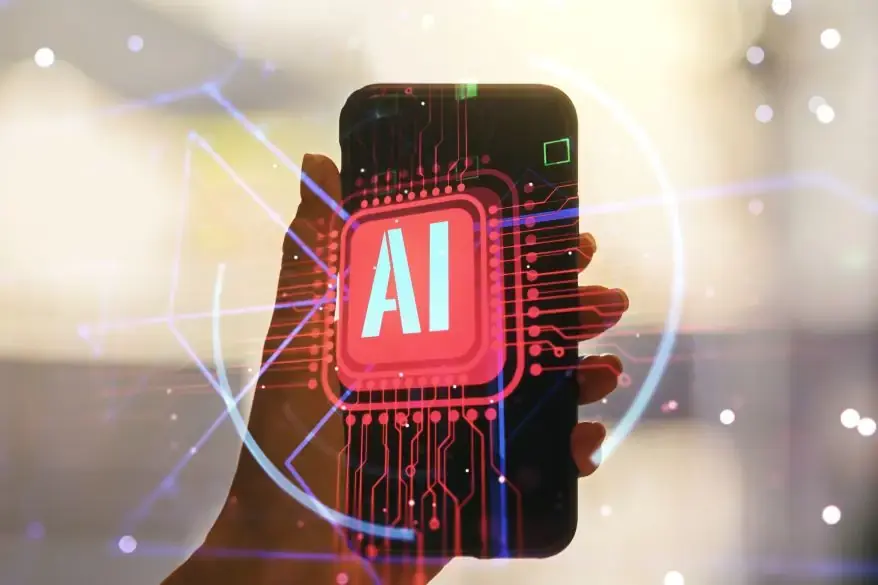The Role of AI in Business Transformation
Businesses are entering a pivotal era where artificial intelligence is no longer an experiment, it’s becoming the backbone of modern operations. Not only competition intensifies and digital demands accelerate but also more companies are embedding AI into everyday workflows to streamline decision-making.
This momentum is driven by a powerful blend of accessible data, evolving machine learning models, and increasingly sophisticated computing power. As a result the AI market is projected to reach a staggering $1,339 billion by 2030, underscoring the urgency for organizations to invest in smarter and more scalable solutions.
The Evolution of AI in Modern Business Landscapes
Just a decade ago, artificial intelligence existed primarily in research labs and science fiction. Today, it powers everything from customer service chatbots to complex supply chain optimization systems. This rapid progression has accelerated as computing power increases and implementation costs decrease.
While traditional digital transformation AI focuses on digitizing existing processes, AI-driven transformation reimagines what’s possible. Instead of simply moving paper forms online, AI-powered systems can automatically extract insights, predict outcomes, and make decisions without human intervention.
In fact, China has become a global leader in AI implementation, with significant government backing and corporate investment accelerating adoption across sectors. The country’s emphasis on AI development has created a thriving ecosystem for innovation.
Companies looking to maintain connectivity while doing business in China often rely on esim china for reliable data access. These eSIM solutions provide seamless connectivity for business travelers and digital nomads without the hassle of physical SIM cards.
The adoption of AI varies widely across industries, with financial services, healthcare, and manufacturing leading the way. Organizations that successfully implement AI typically approach it as a strategic initiative rather than just another technology project.
Foundational AI Technologies Driving Business Transformation
The technologies powering AI in business aren’t single solutions but rather a constellation of complementary capabilities. Understanding these foundational elements helps organizations identify the most promising applications.
Machine Learning Systems
Machine learning algorithms form the backbone of modern business transformation. These systems analyze vast datasets to identify patterns, make predictions, and improve through experience. They’re particularly valuable for forecasting demand, detecting fraud, and optimizing pricing strategies.
Natural Language Processing
NLP technologies enable computers to understand, interpret, and generate human language. This capability transforms customer service through intelligent chatbots, enhances content moderation at scale, and extracts valuable insights from unstructured text data like emails and social media posts.
Computer Vision
Computer vision systems interpret and analyze visual information from the world. In manufacturing, these systems inspect products for defects with superhuman accuracy. In retail, they track inventory and analyze customer behavior in physical stores.
Deep Learning Networks
Deep learning, a subset of machine learning using neural networks, excels at solving extremely complex problems. These systems can identify subtle patterns in data that human analysts might miss, creating opportunities for breakthrough innovations across industries.
The combination of these technologies creates a powerful toolkit for organizations pursuing comprehensive digital transformation AI initiatives.
High-Impact Business Areas Transformed by AI
Certain business functions are especially suited for AI-driven innovation. These areas often involve complex decision-making, large amounts of data, or repetitive tasks—making them ideal for automation.
AI shines in streamlining operations. It automates routine tasks, predicts equipment failures, and optimizes how resources are used. This often leads to fast and measurable returns on investment.
Customers today expect personalization. AI helps businesses analyze data at scale, predict customer preferences, and create tailored experiences. This shifts relationships from simply transactional to genuinely personal.
Financial departments also gain a lot from AI. It can spot anomalies, forecast cash flow, and uncover cost-saving opportunities, often with greater speed and accuracy than human analysts.
Ultimately, AI works best when used to solve real business problems. The most successful AI projects begin with clear operational goals, not with technology for technology’s sake.
Conclusion
The role of AI in business transformation continues to expand as technologies mature and implementation barriers fall. The most successful companies view AI technology’s impact not as a one-time project but as a continuous journey of innovation and adaptation. As we look toward the future, one thing becomes increasingly clear: business transformation through AI isn’t just about staying competitive, it’s about reimagining what’s possible.
Additionally, to stay updated with the latest developments in STEM research, visit ENTECH Online. Basically, this is our digital magazine for science, technology, engineering, and mathematics. Furthermore, at ENTECH Online, you’ll find a wealth of information.






